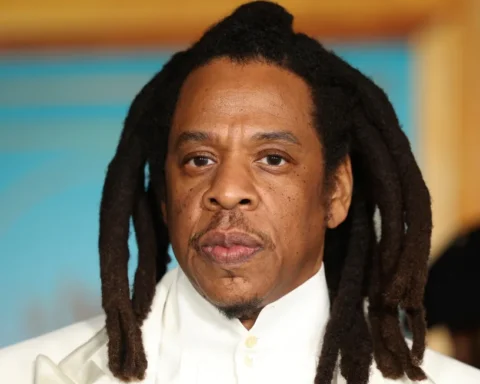
Judge Orders Destruction of Prosecutors’ Copies of Sean “Diddy” Combs’ Privileged Notes Amid Sex Crimes Case
Judge rules to destroy prosecutors' copies of Combs' alleged privileged notes, after defense claims jail search violated attorney-client privilege.
·

A Manhattan federal judge rules that the controversial notes, obtained during a jail search, may not be used in preparation for Combs’ upcoming sex trafficking trial, pending further review.
In a significant development in Sean “Diddy” Combs’ ongoing sex trafficking case, a judge in Manhattan federal court has ordered that prosecutors destroy copies of the rapper’s handwritten notes, which were seized during a jail search. These notes, considered by Combs’ defense team to be privileged, were allegedly related to defense strategies and witnesses and were obtained in violation of attorney-client confidentiality protections.
The ruling came after a tense hearing on Tuesday, where U.S. District Judge Arun Subramanian expressed concern over the potential breach of Combs’ constitutional rights. He instructed that the notes be destroyed, except for a copy kept by the court while he evaluates whether they can be used as evidence in the case. Judge Subramanian noted that a separate team within the U.S. Attorney’s Office would review the materials to determine if they contained any privileged information.
The controversy surrounding the notes began after an October 28 search of Combs’ cell at Brooklyn’s Metropolitan Detention Center, which was conducted as part of a broader “safety and security initiative” unrelated to his legal case. During the search, investigators discovered a manila folder marked “legal,” along with a notebook and address book that contained handwritten notes from Combs. The notes, which prosecutors say included personal and business-related information, were later submitted to a “filter team” for review.
However, Combs’ legal team contends that some of the notes in the notebook, which included references to defense strategies and potential defense witnesses, were protected by attorney-client privilege. His lawyers have labeled the search as “outrageous government conduct,” accusing the authorities of infringing upon Combs’ right to a fair trial and protections against unreasonable searches.
In response, prosecutors argued that while the notes included business and personal matters, some also referenced potentially criminal activities, including efforts to influence or obstruct witnesses. These allegations could affect whether attorney-client privilege applies. Despite these claims, Judge Subramanian ordered that no further use be made of the notes until a full review is conducted.
This development comes as Combs faces serious charges of racketeering, sex trafficking, and transportation to engage in prostitution. He has pleaded not guilty to all charges and continues to deny any allegations of sexual assault.
As the legal proceedings continue, this case serves as a pivotal moment in Combs’ battle for justice, and the court’s decision on the handling of the disputed notes could have far-reaching implications for the trajectory of the trial.
Post Views: 138
- Trump’s New Tariff Order on Canadian Imports Sends Shockwaves Through the Stock Market
- Timothée Chalamet and Kylie Jenner Spotted Sharing a Kiss at the BNP Paribas Open, Fueling Romance Rumors
- Trump Shows Support for Musk Amid Struggles: “I’ll Buy a Tesla to Back Elon”
- Millie Bobby Brown Speaks Out Against ‘Horrible’ Media Coverage: “I Will Not Be Shamed”
BUSINESS
CEO INSIDER
This error message is only visible to WordPress admins
Error: No feed with the ID 1 found.
Please go to the Instagram Feed settings page to create a feed.
















